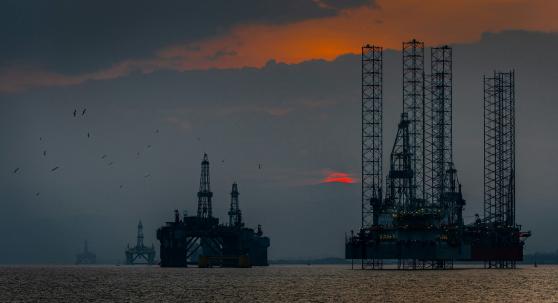The year 2024 has faced many headwinds so far – but arguably the most devastating has been the ongoing conflict in the Middle East.
With far-reaching implications, some of the markets most impacted are global oil prices.
The top three UK oil companies to invest in as Middle East tensions rise
1. Shell
Source: TradingView
The United Kingdom’s largest oil company by far, Shell (formerly Royal Dutch Shell), is one of the world’s biggest energy businesses.
The company share price is up approximately 9.8% this year to date, 15.5% in the past year, and an impressive 10.35% in just the last month.
But what is perhaps most encouraging is how Shell has successfully managed to diversify into liquefied natural gas (LNG) offerings as well as oil.
In its most recent financial results, posted in February, the company boasted stronger-than-anticipated adjusted earnings of $7.31 billion and 2023 full year shareholder distributions of $23 billion.
Shell said in a press release that it managed this, in spite of globally flagging oil prices during Q4, due to “strong LNG trading and optimisation results”.1
If the company is able to show this kind of resilience in the face of geopolitical tensions in the Middle East during Q4, it can do so again as Iran and Israel’s conflict rages on.
2. Harbour Energy
Source: TradingView
You may or may not have heard of it, but Harbour Energy is the United Kingdom’s biggest independent oil and gas explorer producer.
Investing in this ‘oil indie company’ currently costs about 289.50 pence per share – far more affordable for a normal investor than big oil stocks.
Still, it punches well above its weight, with its share price up 8.71% in the past 12 months, and 3.16% in the past month alone.
Also, according to its latest earnings report, the company has returned $249 million through share buybacks in addition to the $200 million annual dividend, resulting in $1 billion of shareholder distributions since becoming a public company in April 2021.2
But the reason that Harbour Energy was picked for this list is its locality: the vast majority of the company’s oil production happens within the UK and British waters.
With essentially all of its resources firmly out of Middle Eastern territory, the company is well placed to be far less disrupted by the ongoing conflicts than, say, Shell or ExxonMobil (NYSE:XOM), or other big oil companies.
3. BP
Source: TradingView
BP (formerly British Petroleum) is the second-biggest oil company in the United Kingdom after Shell, with a market capitalisation of roughly $103 billion.
The BP share price is something of a steal lately, down roughly 6% in the past 12 months. This is largely due to its latest financial results, which said that the company’s reported quarterly profit dropped by a whopping $4 billion in Q4 of 2023. Overall, net profits for 2023 fell by more than half to $13.8 billion, after 2022’s profit of $27.7 billion.
A large portion of that went straight back to shareholders, in the form of $2.75 billion in share buybacks.
Nevertheless, what profits the company did generate was largely due to robust gas trading, just like Shell – and also some savvy sustainable energy ideas.
The company has publicly stated that it is aiming for net-zero carbon emissions by 2050 or sooner.3 In its latest report on the matter, BP said that they had increased biogas volumes by 80% and biofuels production by over 18%.4
All of this makes BP well-positioned to have a better 2024 year than 2023 – and also to be one of the most progressive oil companies in getting its ‘green energy transition’ right.
Sources:
1 Shell, 2024; 2 Harbour Energy, 2024; 3 BP, 2023; 4 BP, 2024
This article first appeared on Invezz.com
